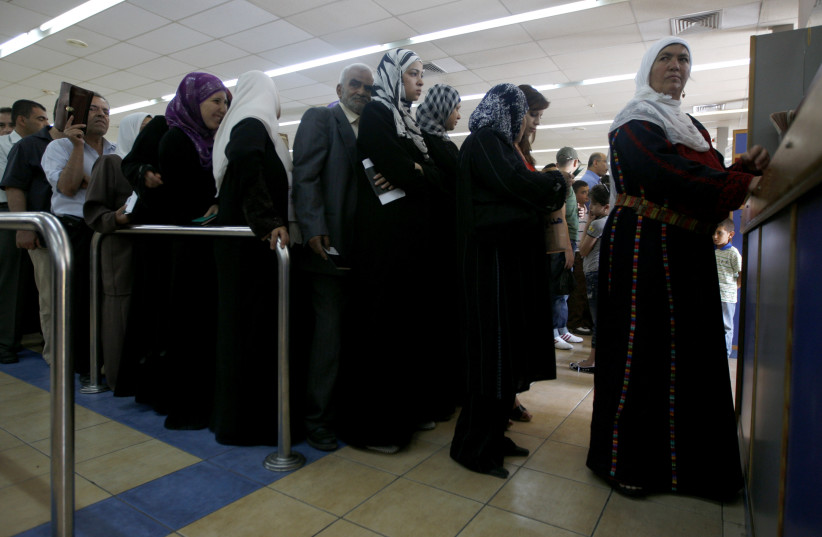The Palestinian Authority and Jordan are demanding that Israel open Allenby Bridge (King Hussein) crossing 24 hours a day to allow thousands of Palestinian passengers stranded on the Jordanian side to return to their homes in the West Bank.
The terminal, which serves as a border crossing between Israel and Jordan mainly for the Palestinian population and foreign tourists, opens from Sundays to Thursdays from 8:00-23:30. On Fridays and Saturdays, it opens from 8:00-15:30.
Israel through a process mediated by Morocco has already agreed to open the crossing 24 hours a day by the end of September. It was one of a number of gestures to the Palestinians that were announced during US President Joe Biden's visit last week.
But Palestinians say that the situation cannot wait for three months and must be addressed now.
In the past few weeks, Allenby Bridge witnessed an unusual movement of travelers in both directions, especially before and after the Muslim feast of Eid al-Adha and the pilgrimage season to Mecca, Saudi Arabia (hajj).
Thousands of Palestinians who left the West Bank through the terminal have been unable to return to their homes because of the limited number of passengers permitted to cross every day.

The Palestinians and Jordanians say that the Israeli authorities allow only 4,000 passengers to enter through the bridge from Jordan every day. In the past few weeks, an average of 7,000 – 15,000 passengers have been arriving at the Jordanian side of the bridge with the hope of crossing into the West Bank.
Many of the passengers said they had to wait for days on the Jordanian side of the bridge before being allowed to enter into the West Bank. Severe overcrowding at the bridge forced many passengers to return to Amman or other parts of the kingdom. Others said they were forced to sleep in the open air.
Veteran Palestinian journalist Daoud Kuttab complained on Twitter that the situation at the bridge is “unacceptable for human beings, especially families with kids.” He added: “I came across today and I was appalled at the long hours of waiting to enter into the West Bank. I counted 17 buses waiting. Even in the VIP section, the situation was unbearable.”
PA Prime Minister Mohammad Shtayyeh said on Tuesday that coordination is underway with Jordan “to force Israel to open the Karama Crossing (Allenby Bridge) around the clock in order to alleviate the suffering of travelers.”
Shtayyeh called for allocating a special lane for the passengers, separately from the one designated for trucks and commercial traffic.
'Catastrophic conditions'
PLO Secretary-General Hussein al-Sheikh blamed Israel for the “catastrophic conditions” at the bridge. “We are conducting intensive contacts with our brothers in Jordan to find solutions to this tragic situation experienced by Palestinians,” al-Sheikh said. “We call on Israel to take the necessary measures to end this suffering.”
Jordan’s Minister of Interior Mazen Farraya said that his country is working to address the overcrowding of Palestinian travelers. He claimed that the crisis was caused by Israel’s “failure to accommodate the unprecedented passenger traffic.
The Jordanian minister, who toured the Jordan Valley crossing early Tuesday, promised “immediate, medium-term, and long-term solutions to the majority of the traveler problems, especially those of a humanitarian and logistical nature.”
According to Farraya, Allenby Bridge is experiencing unprecedented travel congestion as a result of a two-year travel disruption caused by the coronavirus pandemic, the holiday season, and the return of expatriates.
